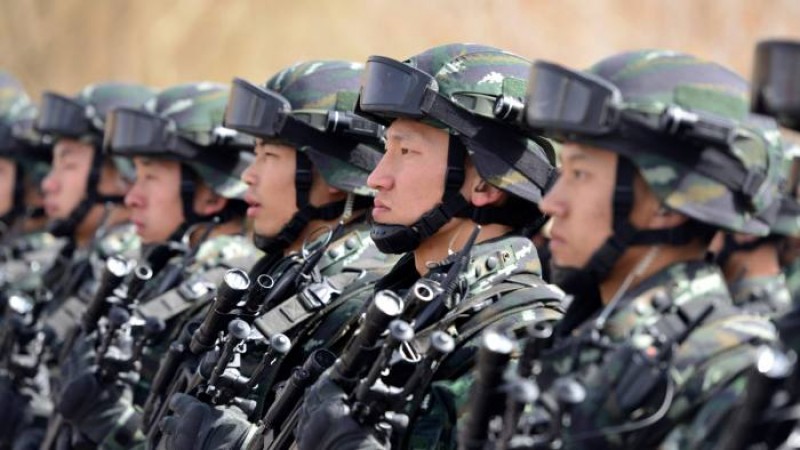- Home/
- News
China seeks global role for elite counter-terrorism forces
China wants its elite counter-terrorism forces to play a bigger role overseas, protecting its growing international interests as President Xi Jinping pursues a more muscular foreign policy. “Counter-terrorism preparations must follow the expansion of the country’s strategic interests,” Zhang Xiaoqi, the head of intelligence for China’s People’s Armed Police, which runs the country’s counter-terrorism forces, told Xinhua, the national news agency, at the weekend. “We must strive to become a deterrent force to safeguard national security, a pioneering force to protect overseas interests and an elite force for universal fighting.”
China passed a wide-ranging new counter-terrorism law in 2015 that allows the army and police to conduct or join counter-terrorism missions overseas. While the law does not clearly define the international role for China’s counter-terrorism forces, a report by the European Council for Foreign Relations, a think-tank, argued that that it “has the potential to lead to a dramatic change in the use of Chinese military power overseas”. Li Wei, who heads counter-terrorism research at the China Institutes of Contemporary International Relations, a state-run think-tank, said that any overseas operations would be conducted alongside local governments. “It wouldn’t be unilateral but must be in collaboration with the local government, unlike the US military’s counter-terrorist activities,” he said. Mr Li added that China’s external counter-terrorism focus was not only on military operations but also intelligence sharing and judicial cooperation, especially in countries that are part of Mr Xi’s Belt and Road infrastructure investment initiative. Zhang Baohui, a professor of political science at Lingnan University in Hong Kong, said China is entering the final phases of its “going global” strategy and that it will get drawn into defending its interests, particularly in restive parts of Central Asia and Africa.
“It is merely a matter of time before China starts to conduct overseas military operations to protect its national interests,” he said. Prof Zhang said that Western governments should not be “overly wary” of this development. “If the world expects China to shoulder greater burdens for global governance, anti-terrorism is one area where China may play more prominent roles in the coming years,” he said. Chinese units, including the elite Snow Leopard Commandos, which are part of the People’s Armed Police, have been posted overseas previously to guard Chinese diplomatic missions in Afghanistan and Iraq. Beijing has also joined a growing number of counter-terrorism exercises around the world, as its citizens have been killed in recent terrorist attacks at home and abroad, from Thailand to Mali. Mr Xi is pushing China to match its increasing economic might with a more robust foreign policy — and sees the armed forces as an important tool of diplomacy.
Under Mr Xi’s watch, the PLA has intensified a modernisation programme and expanded its global reach, opening a naval base in Djibouti last year, its first foreign base since its troops pulled out of North Korea in the 1950s. Mr Zhang of the People’s Armed Police said that China’s counter-terrorism forces were also upgrading, to ensure they can handle the increased complexities of operating overseas. He said the special forces had been trained to “not fear suffering and not fear death” as they take on their expanded responsibilities.
Source: Link



 Development of specialized PCVE web site is funded by EU FUNDS CN 2017-386/831 - "IPA II 2016 Regional Action on P/CVE in the Western Balkans"
Development of specialized PCVE web site is funded by EU FUNDS CN 2017-386/831 - "IPA II 2016 Regional Action on P/CVE in the Western Balkans"